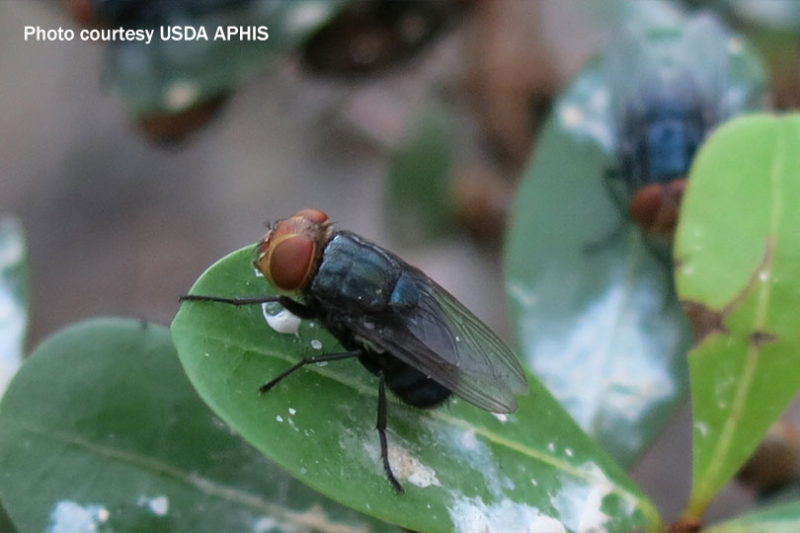By Julie Tomascik
Editor
The U.S. Department of Agriculture issued a strong warning to Mexico over the weekend, calling for the country to take immediate action to control the spread of the New World screwworm or face renewed restrictions on livestock imports.
The New World screwworm, a parasitic fly whose larvae infest and consume the flesh of warm-blooded animals, poses a significant threat to livestock and wildlife.
“We are now at a critical inflection point in our shared campaign against this pest, and I am very concerned about our collaboration,” U.S. Secretary of Agriculture Brooke Rollins said in a letter dated April 26 to her Mexican counterpart. “The outbreak in southern Mexico continues to expand, and every day that passes without full deployment of sterile insect technique operations represents a lost opportunity to contain this pest and prevent its spread beyond the Isthmus of Tehuantepec.”
The pest was first confirmed in November 2024 on a cow at an inspection checkpoint in the southern Mexico state of Chiapas, close to the border with Guatemala.
Since then, over 800 cases have been confirmed in Mexico as the pest creeps closer the border with the U.S.
In the letter, Rollins noted several obstacles hindering eradication efforts. She said that Mexican tariffs on aircraft parts, equipment and sterile flies are delaying efforts, as well as the unnecessary restrictions on aircraft contracted to release sterilized flies.
Dynamic Aviation, one of the contracted companies, is only allowed to fly six days a week and only has a 60-day permit for operation.
“We do not understand how our official efforts to stop a common pest can be subject to such burdensome customs duties,” Rollins said. “These delays and costs not only disrupt operations but risk delaying aircraft deployment at the precise moment when rapid action is needed most.”
The U.S. is requesting the Mexican government to grant Dynamic Aviation long-term operational clearance and waiving tariffs for related aircraft parts, flies and equipment provided by USDA’s Animal and Plant Health Inspection Service. USDA is also asking Mexico to establish a point of contact to help remove bureaucracy and regulatory obstacles.
“I must inform you that if these issues are not resolved by Wednesday, April 30, USDA will restrict the importation of animal commodities,” Rollins said in the letter.
The U.S. previously blocked cattle and bison imports last November when the pest was first detected in Mexico, but imports resumed in February under a new protocol where animals are inspected for screwworms before and after arrival in the U.S. Additional protocols require animals to be dipped to ensure they are insect- and tick-free.
USDA has allocated $165 million in emergency funding to bolster eradication efforts, including the release of sterile flies in the affected areas.
To eradicate the pest, sterile male flies are bred to mate with fertile female flies, which only mate once in their lifetime. The screwworm population decreases until it eventually dies out. This is how the pest was eradicated from the U.S. in 1966.
While USDA presses for action from Mexico, Texas Farm Bureau is also pushing for longer-term safeguards at home. The organization is advocating for a sterile fly production facility to be built in the U.S. and continues to partner with federal and state officials to advance strategic solutions to this agricultural threat.


Leave A Comment